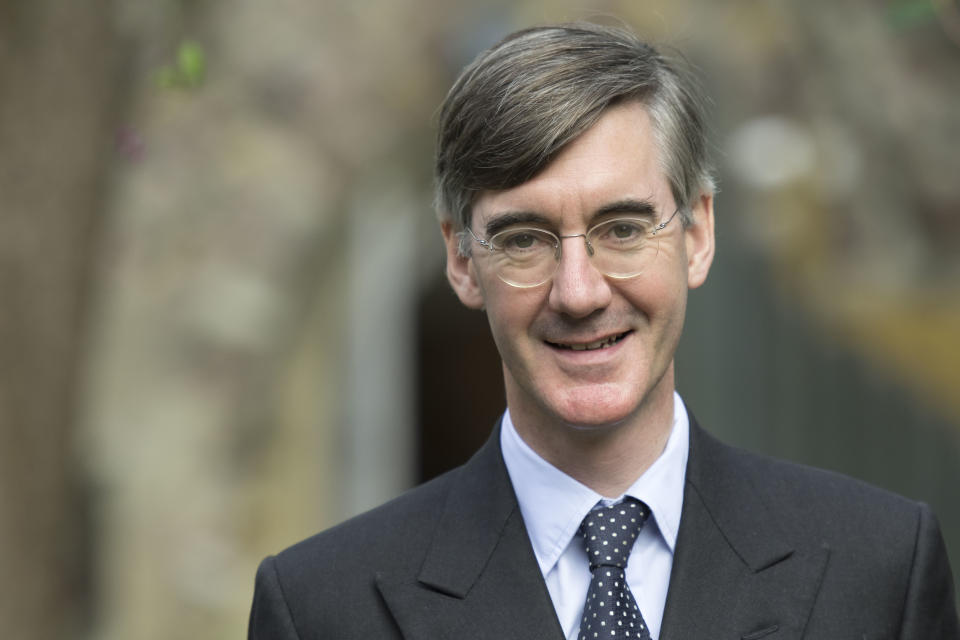Theresa May scrambles to unite warring cabinet over Brexit

Theresa May is scrambling to unite her warring cabinet ahead of a meeting on Friday to thrash out the government’s policy on its future relationship with the EU.
Deep splits have been carved between minister over the issue of Brexit, as rumours of a climbdown by the Prime Minister on the issue of customs circulate.
Mrs May will spend the next three days attempting to win over senior ministers into backing her Brexit negotiating stance ahead of the final phase of talks with the EU this summer.
A senior Tory told The Times that the atmosphere in Westminster was ‘a bit end of days’ ahead of the meeting at Chequers, the PM’s country residence.

Customs conundrum
The government is set to publish a document setting out its stance in the EU negotiations early next week, including a proposal for how customs will be dealt with following Britain’s exit from the bloc.
Two models have so far been considered by ministers: the ‘maximum facilitation’ system favoured by Brexiteers, which proposing using technology to help reduce friction at the border; or the “customs partnership” where the UK would collect duties on behalf of the EU.
Both models have been rejected as unworkable by EU negotiators.
It is understood that a “third way” is now be under consideration, although details are so far scant, and ministers have complained that they have been kept out of the loop as to the content of the new proposals.
Mrs May has promised numerous times that the UK will be remain part of the single market or customs union – and the issue is of paramount importance to arch-Brexiteers.
Toppling the Prime Minister
Reports have emerged this week of Brexiteer backbenchers plotting to overthrow Mrs May if she shifts her stance towards a soft Brexit.
Boris Johnson has reportedly considered resigning if the PM gives too much ground to those pressing to keep Britain as close to the EU as possible after Brexit, potentially triggering a leadership contest.

On Monday, Mr Johnson risked further inflaming tensions within the party when he publicly defended backbencher Jacob Rees-Mogg after he warned the Prime Minister she faced the collapse of her Government if she failed to deliver on her Brexit promises.
The intervention by Mr Rees-Mogg, the leader of the pro-Brexit European Research Group of Tory MPs, sparked a furious backlash, with Foreign Office Minister Sir Alan Duncan accusing him of “insolence” in threatening Mrs May.
Fellow Tory minister Dr Phillip Lee spoke out against possible plotters today, saying that a leadership challenge is ‘the last thing we need’.
The last thing we need is a leadership challenge. But when an MP & his supporters have collected £750k to do just that, there is no doubt that Brexiteers are planning a coup. I call on other rational members of the party to stand against this nonsense https://t.co/oQ4TLa8oXS
— Dr Phillip Lee MP (@DrPhillipLeeMP) July 3, 2018
The Northern Ireland issue
Theresa May has pledged time and time again that she will not allow a hard border between Ireland and Northern Ireland.
However the EU is so far not satisfied with the solutions she has suggested to make sure this happens, and many think the promise is at odds with the government’s plan to exit the customs union.
European Commission president Jean-Claude Juncker told MEPs today: “We have been waiting for months now for the White Paper from No 10 Downing Street and we will analyse it once we receive it.
“We will not accept that the Irish issue is isolated in such a way that it is the only issue not resolved at the end of these discussions.”
How would a Conservative leadership contest work?
A leadership contest can be triggered in two ways. Either the leader must resign, or at least 15% of Conservative MPs need to write to the chairman of the 1922 Committee expressing a lack of confidence in the current leader.
The 1922 Committee is a committee of all the Conservative backbench MPs, which meets weekly while the House of Commons is sitting.
Any MP who wishes to run as candidate needs the support of two fellow MPs in order to get onto the ballot paper. If only one candidate is nominated, they automatically become the next leader.
Tory MPs then vote using the first past the post system. If more than three candidates have been nominated, the one with the lowest proportion of votes is eliminated and another ballot is held. This process continues until two candidates remain.
Conservative Party members then vote for the two nominees, and the winner becomes the new leader.

 Yahoo News
Yahoo News 

